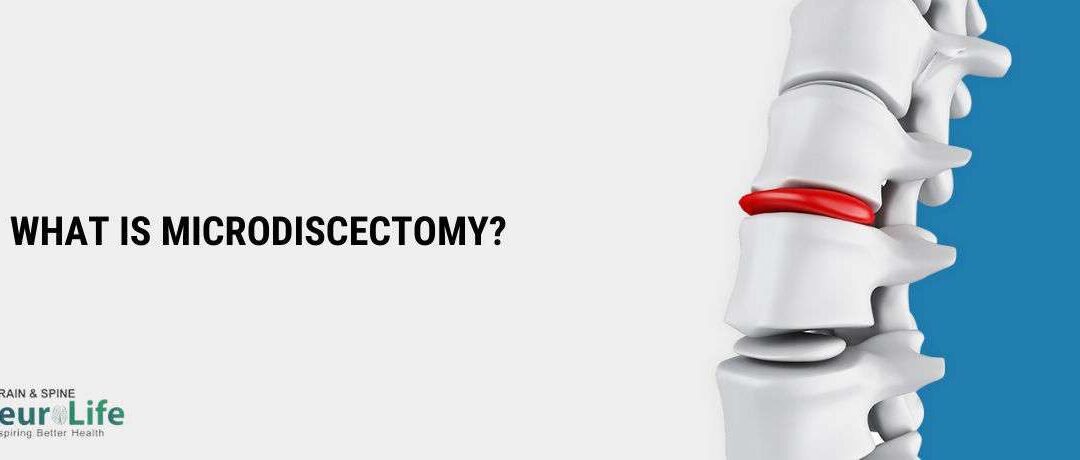Do you require surgery for your herniated lumbar disc? Are you worried about the pain and the long recovery period? Don’t worry. We have a solution for your worries, and it is called a microdiscectomy.
Yes, spine surgery once meant long recovery periods, large incisions, and painful rehab, but not anymore. Surgical advances in Mumbai, such as microdiscectomy, have made the procedure less complicated.
So, what is microdiscectomy, and who is it for?
What is Microdiscectomy?
Microdiscectomy, also known as microdecompression, is a minimally invasive surgical treatment. It is performed on patients with a herniated lumbar disc.
A microdiscectomy is considered the gold standard for extracting the herniated portion of the lumbar disc that is pressing on your spinal nerve. It is practised by some specially trained spine surgeons in Mumbai.
While technically an open procedure, a microdiscectomy utilizes minimally invasive techniques. It can be performed with a relatively small incision and minimal tissue disruption or damage.
Even though microdiscectomy is an effective procedure, it does not benefit everyone with a spine problem.
Who Benefits from Microdiscectomy?
Microdiscectomy’s goal is to remove the disc material, placing pressure on your nerves. The surgery is completed under general anaesthesia. You will be unconscious during the entire treatment and unable to feel anything.
Your spine surgeon will follow the procedure as mentioned below:
- A 1- to 1 1/2-inch incision is made directly over the affected disc
- Your surgeon uses a lighted microscope to assist in seeing the affected areas
- The surgeon may take out a bone’s small portion that protects the root nerve.
- With a scissor-like tool, the surgeon will take out the damaged herniated tissue, relieving the pressure on your nerve.
- Your surgeon will use sutures to close the incision
- You may be discharged the same day or the next morning.
Your spinal nerve now gets the space it requires inside the spinal column, so any pain caused due to pinching on the nerve should stop.
Recovery time after Surgery
The recovery time is shorter than other invasive treatments. You can expect to leave the hospital the same day or in 24 hours. You will meet with an occupational therapist and physical therapist before leaving the hospital.
The therapists will provide you instructions to decrease the lifting, bending, and twisting you perform with your back.
They may recommend exercises that you can do to enhance the flexibility and strength of the muscles around your spine.
It would be best if you prevented sitting and driving for a very long period. Also, avoid lifting heavy things and bending over immediately after the surgery.
You may not resume physical hobbies or exercise for two to four weeks after the surgery.
You can start your regular physical routine slowly after a few weeks of surgery.
Although you will not resume your routine immediately, the surgery will not impact your lifestyle too much.
The usual time for a complete recovery is about six weeks.
What are the Risks of Microdiscectomy?
Microdiscectomy is a safe treatment, and complications are uncommon. However, like any surgery, there are a few risks. These include:
- Dural tear (cerebrospinal fluid leak) in one to two percent of procedures
- Nerve root damage
- Recurrent disc herniation (five percent of cases)
- Bladder/bowel incontinence (very rare)
- Bleeding
- Infection
When to Talk to Your Doctor
Microdiscectomy is a minimally invasive procedure in which Dr Gurneet Sawhney specializes, who is an highly experienced Spine surgeon and Neurosurgeon in Mumbai. with a fantastic track record for relieving pain. Many patients who have sciatica will not need surgery. However, they may require a microdiscectomy surgery if all other procedures fail to relieve pain.
Your doctor will review your condition and determine if the surgery is right for you. If you are a candidate, you must discuss the procedure’s risks and benefits with your doctor. Remember, look for a spine surgeon in Mumbai who is specially trained to perform microdiscectomy.

